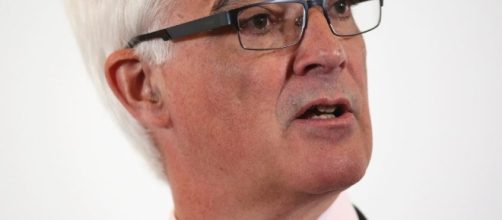Regardless of your political convictions, it is impossible not to feel sympathy for Alistair Darling in hindsight. When he became Chancellor of the Exchequer in 2007, his predecessor led everyone to believe that the days of "boom and bust" were over. Yet on September 14th 2007, when dozens of customers queued up outside Northern Rock branches across the nation, it soon became clear that was not true.
A mini recession transformed into the worst financial crisis the world has witnessed since 1929
For a brief moment in Mr. Darling's next career stage, the economy was booming and Gordon Brown looked set (rather like Theresa May this year) to win a massive landslide.
That is why the former chancellor is correct to identify the Northern Rock crisis as the moment Labour lost control. By 2008, a mini recession transformed into the worst financial crisis the world has witnessed since 1929.
Mr. Darling's 2008 Autumn Statement implemented certain measures to ease the economic burden many people were experiencing. These included slashing VAT to 15 per cent and easing stamp duty on first-time buyers. However, he foolishly increased the top rate of income tax to 50 per cent in 2009. Yet these policies were not enough. Labour had ushered in new Conservative-led administrations when the 2010s began and what has followed since is sluggish economic growth and a squeeze on living standards.
Last year's Brexit vote was caused by a sense of anger among voters that the EU is part of a wider "us and them" culture, which is why the former chancellor is right to link the EU Referendum to the 2007-08 Great Recession. If the former event happened in 2006, many people would have listened to established banks like JP Morgan about the consequences of leaving the trading bloc because these institutions were much more respected then. In 2016, bankers were hated by most of the electorate, which is why they did not heed their warnings.
The banks also helped cause the Eurozone crisis
Yet the banks also helped cause the Eurozone crisis. Though this issue was not explored in detail during last year's EU Referendum, institutions like JP Morgan have the money and resources to lobby the European Parliament to legislate loose banking regulations.
This caused large banks to emerge, swallowing up competition and becoming so huge that governments across the continent had no choice but to bail them out. Equally, it was their failure to ensure competition survived in this sector that meant they had to rescue them.
The financial crisis contributed towards Eurozone stagnation, the Greek and Italian bailout crises and a rise in Euroscepticism across Europe. This proves European-wide regulations cannot work throughout the continent.
Equally, Mr. Blair is also responsible for Brexit. He integrated Britain into the EU through various treaties that included Amsterdam, Nice and paved the way for Lisbon. He also promised Brits endless referendums about European integration and never delivered.
UKIP became a powerful political force under his watch. If anybody deserves blame for last year's EU Referendum result, then it is Mr. Darling's former leader. It is convenient he forgot to mention this.
Mr. Darling is correct- the recession did help cause Brexit. Equally, the banks helped create the environment that caused both events by lobbying European politicians for loose regulations that allowed them to become too big and exposed how vulnerable the European project is. But this practice continues. It is a miracle Britain is leaving this trading bloc.

